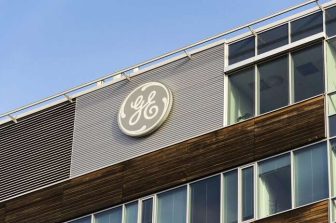Bristol-Myers Squibb Company (NYSE:BMY) faced a setback as it reported lower-than-anticipated results for the second quarter of 2023, leading to a revision in its annual projections. The company’s adjusted earnings per share for the quarter were $1.75, falling short of the Zacks Consensus Estimate of $1.99. In comparison, during the same period last year, BMY recorded adjusted earnings per share of $1.93.
Total revenues for the quarter amounted to $11.23 billion, missing the Zacks Consensus Estimate of $11.8 billion. This decline of 6% from the previous year was attributed to generic competition affecting sales of the multiple myeloma (MM) drug Revlimid. However, the impact was somewhat offset by steady sales from in-line products, primarily Opdivo, and the introduction of new product portfolios such as Opdualag, Abecma, and Reblozyl.
The company’s stock performance has been underwhelming, with shares plummeting 11.9% year-to-date, compared to the industry’s decline of 11.2%.
Quarterly Revenue Breakdown Revenues in the United States saw a 5% decrease, amounting to $7.9 billion, primarily due to reduced sales of Revlimid caused by generic competition and an increase in the number of patients receiving free drug products through the company’s patient assistance program. International revenues also took a hit, declining by 8% to $3.3 billion, owing to generic competition for Revlimid and Eliquis, along with lower average net selling prices. These declines were partially offset by the solid performance of Opdivo.
In-line and new product portfolios contributed $9.5 billion in revenue, showing a 4% increase from the previous year. Within this segment, sales of Eliquis in the United States grew by 7% to $2.3 billion, while international markets witnessed a 17% decline to $864 million due to generic erosion in Canada and the U.K.
Sales of Opdivo, an immuno-oncology drug with multiple cancer indications, saw a 4% year-on-year increase, reaching $2.1 billion. However, this figure missed both the Zacks Consensus Estimate of $2.3 billion and our estimate of $2.4 billion. While sales in the United States grew by 2%, international markets experienced a 7% increase driven by additional indication launches and core indications, but offset by foreign exchange impacts.
Other drugs, including Pomalyst, Orencia, Sprycel, and Yervoy, recorded mixed results in terms of sales performance.
The new product portfolio revenues, which witnessed significant demand, amounted to $862 million, mainly driven by increased sales of Reblozyl, Abecma, Opdualag, Breyanzi, and Zeposia.
2023 Guidance Revised Bristol-Myers now expects adjusted earnings per share in the range of $7.35 to $7.65 for 2023, down from the previous guidance of $7.95 to $8.25. Revenues are also anticipated to decrease in the low single digits, a stark contrast to the earlier guidance of an approximate 2% increase. Notably, Revlimid sales projections have been revised to $5.5 billion from the previous estimate of $6.5 billion.
Strategic Move In a bid to strengthen shareholder value, the company announced a $4 billion accelerated share repurchase program, scheduled for execution during the third quarter of 2023.
Analysis and CEO Announcement Bristol-Myers’ lackluster second-quarter performance can be attributed to sustained generic competition for Revlimid, while Eliquis also faced headwinds due to generic rivalry. Consequently, the company was compelled to adjust its annual forecast.
Additionally, earlier announcements revealed that Giovanni Caforio, MD, chairman of the board and chief executive officer (CEO), will be stepping down from the CEO position, effective November 1, 2023.
Featured Image: Megapixl















